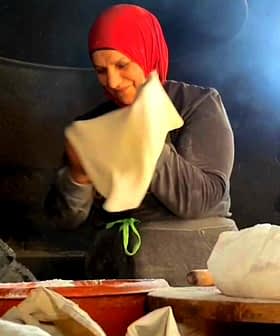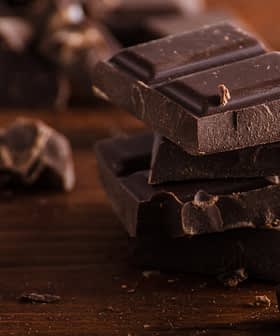Is Cooking With Olive Oil Healthy?
A body of research shows that olive oil, and in particular extra virgin olive oil, is a healthier choice when compared with other vegetable oils.
Extra virgin olive oil (EVOO) is well known as a source of bioavailable phenolic compounds that provide various health benefits across many diseases — cancer, cardiovascular disease, neurodegenerative disorders and others.
Olive oil is a monounsaturated fat that is higher in bioactive compounds compared to other vegetable oils. While it is well known to be an all round healthy oil, maintaining the vast array of nutritional qualities under cooking processes is often questioned. So let’s evaluate what the research shows surrounding OO and various domestic cooking processes — deep frying, pan frying, boiling and roasting.
Deep Frying
The most recent study, published in Food Chemistry, 2015, aimed to study the effects of different domestic cooking processes on the phenolic composition of various Mediterranean foods, potato, tomato, pumpkin, eggplant, cooked in EVOO. Four different cooking processes were tested, deep frying (180°C), sautéing (80 – 100°C), boiling (plain water), boiling (water+EVOO mixture — both boiling at 100°C). Each was subjected to 10 minutes of cooking followed by five minutes of cooling before refrigeration and testing.
See Also:Pairing Extra Virgin Olive Oils with Foods
Surprisingly, the results of the study showed that the overall quality of the vegetables was significantly improved when deep-fried in EVOO because the produce becomes enriched with EVOO phenols transferred from the oil. However, though this may be the case, it’s important to note that the fat content is significantly increased compared to boiling as is to be expected.
It’s also important to note that results for each vegetable did vary so while the phenolic compounds were found to be higher in the deep-fried vegetables, the overall conclusion was that “each cooked vegetable developed specific phenolic and antioxidant activity profiles resulting from the characteristics of the raw vegetables and the cooking techniques.”
Another study, published in Food Chemistry Toxicology, 2010, aimed to specifically evaluate the effects of deep frying with OO. Five samples of commercial OO, including one EVOO, from the northeast Portugal region were used for the study. Potatoes were used as the vegetable subject with domestic deep-fat electric fryers at 170°C. All the OOs had similar total phenolic compounds (TPC) before frying.
The results showed that, “the degradation rates were similar between all olive samples, with a 0.7 percent increase per hour in the EVOO, and 0.8 percent in all the other olive samples, without clear differences.” EVOO obtained the highest oxidative stability. After 6 hours of frying, only the EVOO still contained phenols, while the other samples were diminished. Still, it is rare to cook for 6 – 12 hours in domestic situations so overall the study concluded that olive oil, independent of the commercial category chosen is “clearly resistant to degradation under domestic frying conditions (170 °C).”
Another study, published in the Journal of Agriculture and Food Chemistry, 2003, took potato slices and subjected them to deep frying for 10 minutes at 180°C in EVOO. This study showed that after just one frying process, the phenolic compounds reduced by 40 – 50 percent compared to their original concentration. And after 6 frying sessions, less than 10 percent of the original concentrations remained. The total antioxidant capacity reduced from 740 umol of Trolox/kg down to less than 250 umol after the first frying session and further down to 139 – 144 umol/kg after 12 frying sessions. In regards to the formation of polar compounds and total polar material, EVOO showed good resistance.
Pan-Frying
Interestingly, pan frying results in slightly faster degradation of EVOO compared to deep frying. Authors of a review, published in Food Research International, 2013, suggest that this is likely due to “higher food: oil contact surface, higher exposure to atmospheric oxygen, and lower temperatures under processing.” However, they also note that “in comparison with other vegetable oils, the fried food is enriched with olive oil antioxidants, as long as the olive oil is not extensively heated.”
Boiling
A study, published in Food Science and Technology, 2010, used a sample of EVOO and OO with carrots, onions, and potatoes, to evaluate the effect of boiling. Vegetables were boiled for 60 minutes with 60 g of each OO added at the beginning or 15 minutes before the end of the boiling process. As expected, the results showed that boiling does not result in oxidation. Tocopherols and all polyphenolic components decreased in concentration. However, adding OO to the boiling process just 15 minutes before the end of the boiling process increased “content of both oleanolic acid derivatives, 3,4‑DHPEA-EA and 4- HPEA-EA, and hydroxytyrosol acetate.”
Roasting
A study, published in Food Chemistry, 2010, looked at the behaviour of olive oil phenolic compounds during roast processing. According to the study, “Samples included extra-virgin olive oil (EVOO), virgin olive oil (VOO), olive oil (OO), sunflower oil (SFO), soy oil (SO), corn oil (CO) and peanut oil (PNO). Beef (150 g, cube shape) or 150 g of potatoes (six quarters of potatoes).” The vegetables were processed in 60 g of each oil in an oven at 180 °C until the inner temperature of meat reached 180 °C, which took an average of 60 minutes.
Sunflower and seed oils oxidized and failed to maintain antioxidant capacity compared to olive oil, which did not oxidize during roasting, the authors suggesting due to a higher tocopherol content. Clearly, the unprocessed oil samples including olive oil, contained higher levels of phenolic compounds, which after roasting was significantly reduced in all samples. For example, “a dramatic loss of 3,4‑DHPEA-EDA (98 percent) and 3,4‑DHPEA-EA (70 percent)” was found in OO samples. However, the radical activity was higher for OO samples, compared to other vegetable oils.
Overall, OO degradation due to processing is a complex issue determined by many different factors. Regardless of some benefits being shown toward deep frying, high temperatures of deep frying do induce chemical changes such as oxidation, polymerization, cyclization, and hydrolysis. However, compared to other vegetable oils, OO is a better choice for cooking, regardless of the method, as it is more resistant to the effects of oxidation and free radical production.
According to the authors of the study published in Food Chemistry 2015, “These chemical reactions are influenced by the type and quality of the oil, the food properties, and the food/oil ratio, among other parameters.”
In conclusion, OO and in particular EVOO is considered a healthy cooking oil overall, especially in comparison to other vegetable oils. Minimizing cooking time and not reusing oils helps reduce oxidation and loss of phenolic compounds. However, to maintain the full benefits and bioactive compounds in OO the best way to consume it is raw, in its original unprocessed state.








